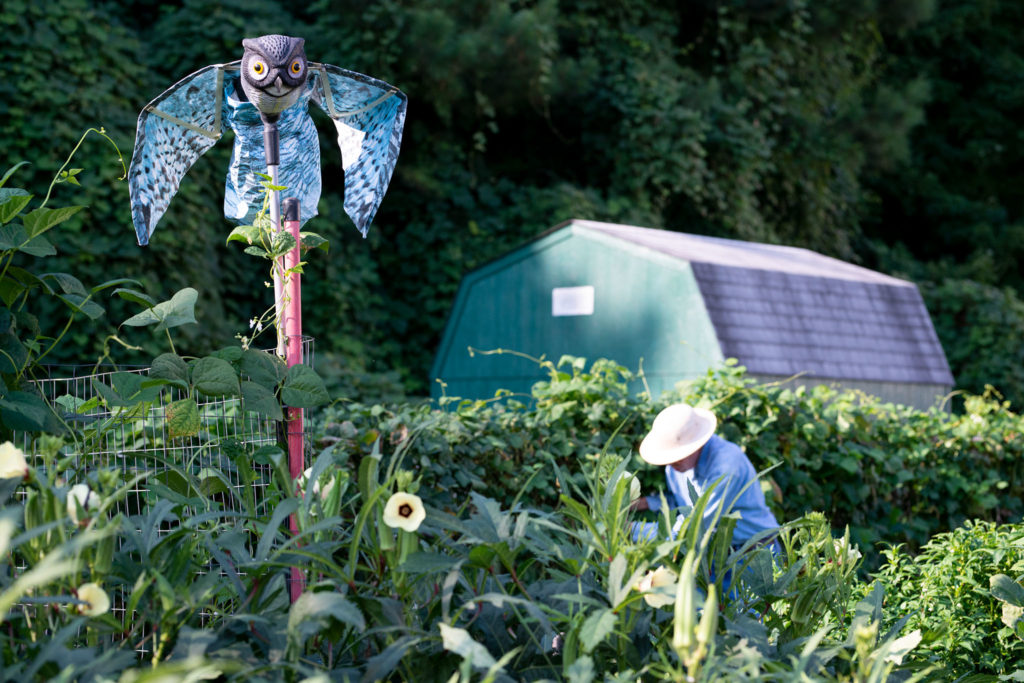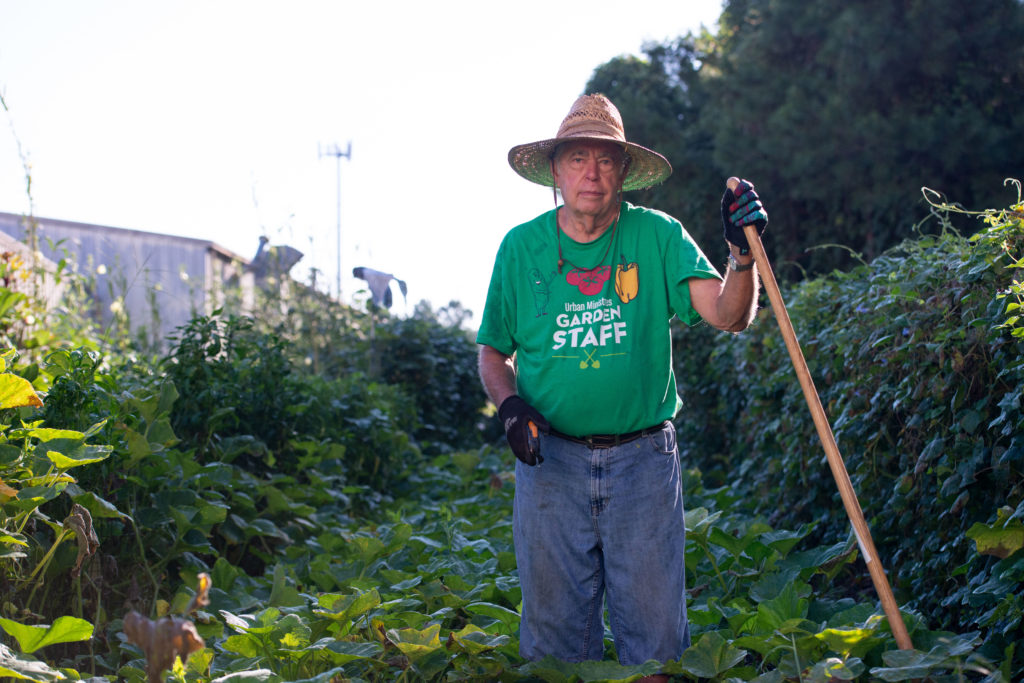On a plot of land off of Capital Boulevard, the volunteers at the Open Door Clinic have created a small farm that provides healthy produce for their patients.
by Catherine Currin | photography by Tyler Cunningham
Hidden behind industrial buildings on the edge of Capital Boulevard is an abundant, 880-square-foot garden. In the height of summer, it’s filled with ripening tomatoes, a surplus of field peas and sky-high stalks of okra.
For the past decade, volunteer physicians at the Open Door Clinic of Urban Ministries have made it their mission to provide healthy food to those in need. The clinic provides medical care and pharmacy services to low-income, uninsured adults in Wake County who do not qualify for Medicaid. The mission of Urban Ministries, a nonprofit that’s been in Raleigh for more than 40 years, is to serve those affected by poverty through avenues like nutrition, health care and housing. The organization also provides hunger assistance through an on-site food pantry and an emergency shelter downtown at the Helen Wright Center.
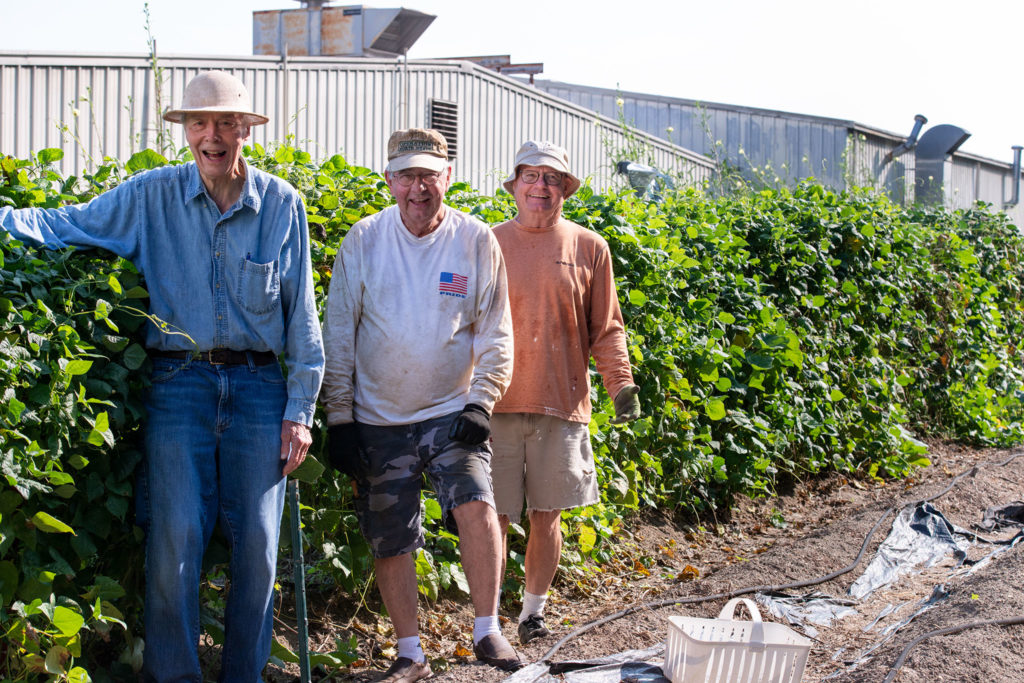
Dr. Robert Majors and Dr. Ben Ferdon, longtime volunteers at the clinic, started the garden at Urban Ministries in 2012 to ensure low-income families had access to healthy options when receiving food assistance. “We would see a lot of patients with chronic disease,” says Majors, “and one of the things that we generally stress is a proper diet. We found that a lot of patients got adequate nutrition, but very little in the way of fresh produce.” He says that Urban Ministries already had a small plot for gardening, but they wanted to create something more substantial in terms of volume.
Thanks to land donated by commercial real estate firm Harrispark Properties, the first plot at the end of the parking lot (about half the size of the current garden) yielded around 6,000 pounds of produce annually. “We used that for three or four years, then that land was going to be developed so we had to move to another area, behind the sign shop ColorGraphic on the other side of the building,” says Majors. This current space has been growing for the past five years and can produce more than 7,000 pounds of produce each year.
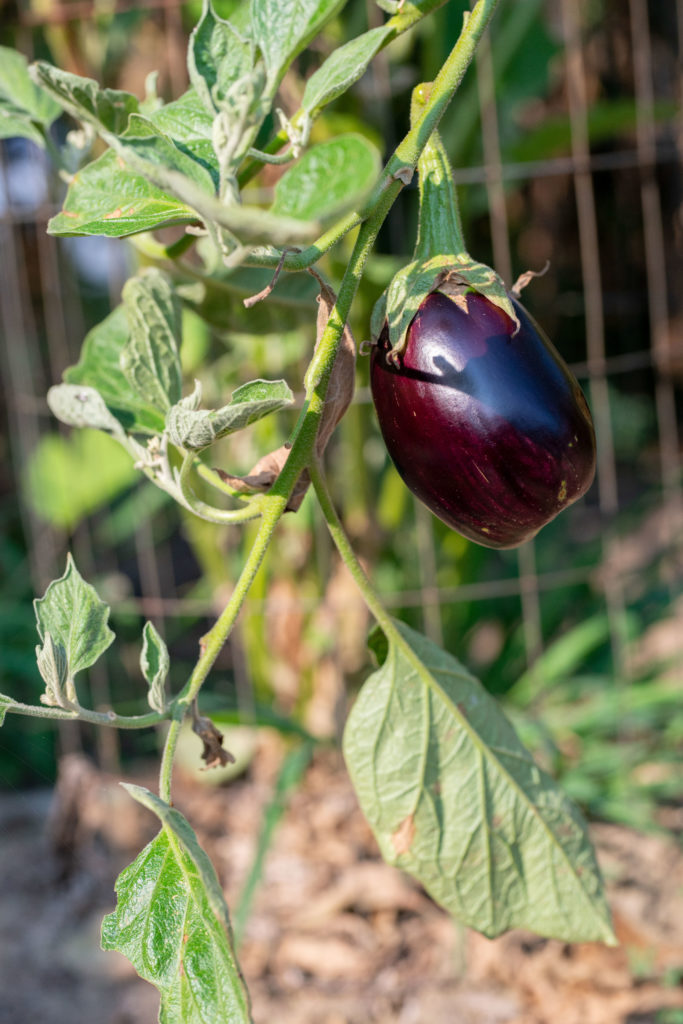
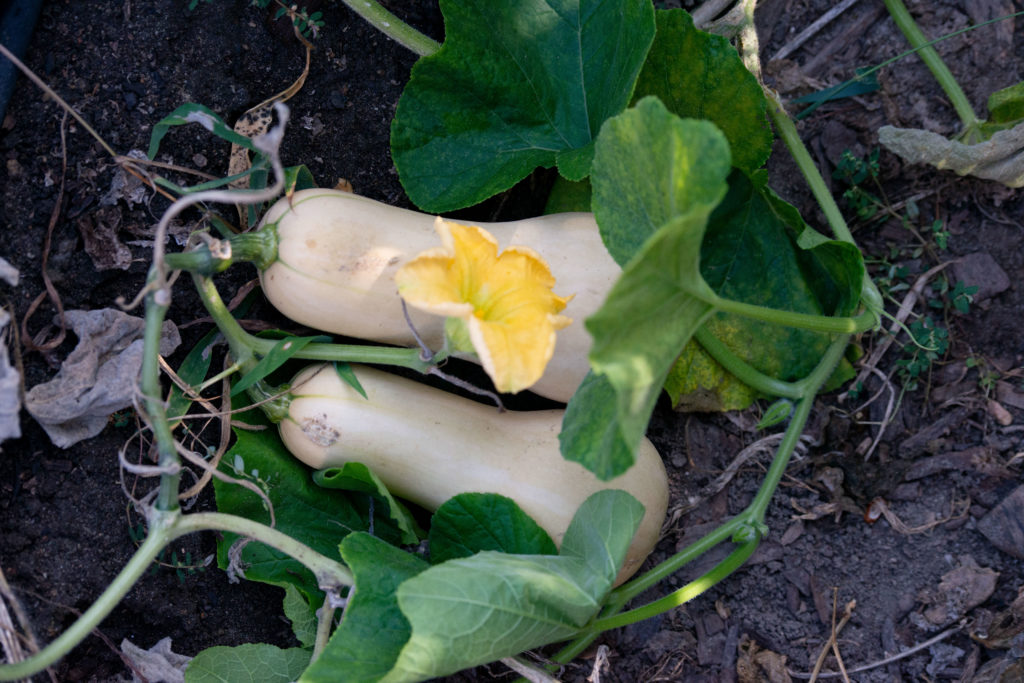
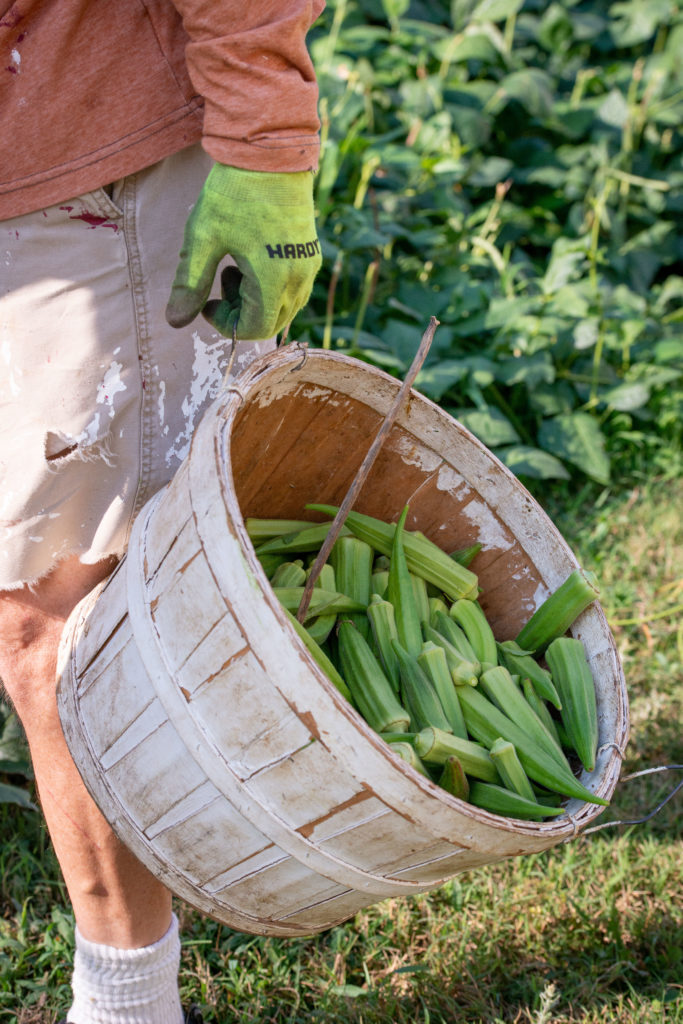
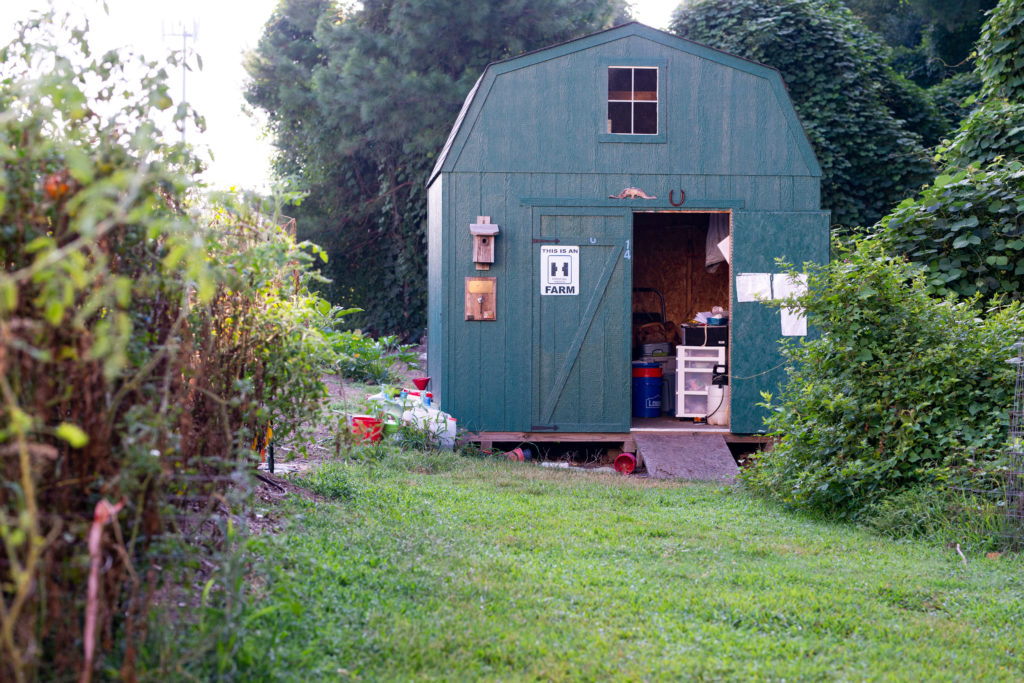
Urban Ministries director of hunger and nutrition Nick Robertson says the half-dozen or so volunteers at the garden have a “green thumb like no other.” He has been with the organization for three years, and he’s grateful to have local produce for those they serve.
Majors learned to garden during World War II, when he tended to his own Victory Garden. “A small plot of land could feed so many people,” he says. While Majors’ garden was out of necessity, this one is a labor of love. Majors said he, Ferdon and other volunteers maintain the garden year-round, and it yields produce consistently, except at the height of winter. His favorite vegetable to grow? “I personally love the tomatoes; there are 130 different varieties in the garden,” he says. Every pound of produce is picked by hand with care and given directly to those in need — Majors says it’s usually less than a 24-hour turnaround in their now drive-through pantry.
“If you don’t have food, that can create a whole list of problems,” says Robertson. “We want to make sure we give access to a lot of produce, and the garden goes a long way.” Wake County social workers rely on Urban Ministries to support the families they work with. “During the pandemic, I started to come to Urban Ministries to pick up food for people in my neighborhood,” says Donna V., a Wake County social worker. “I do this because no one should worry where the next meal is coming from; no child should go hungry.”
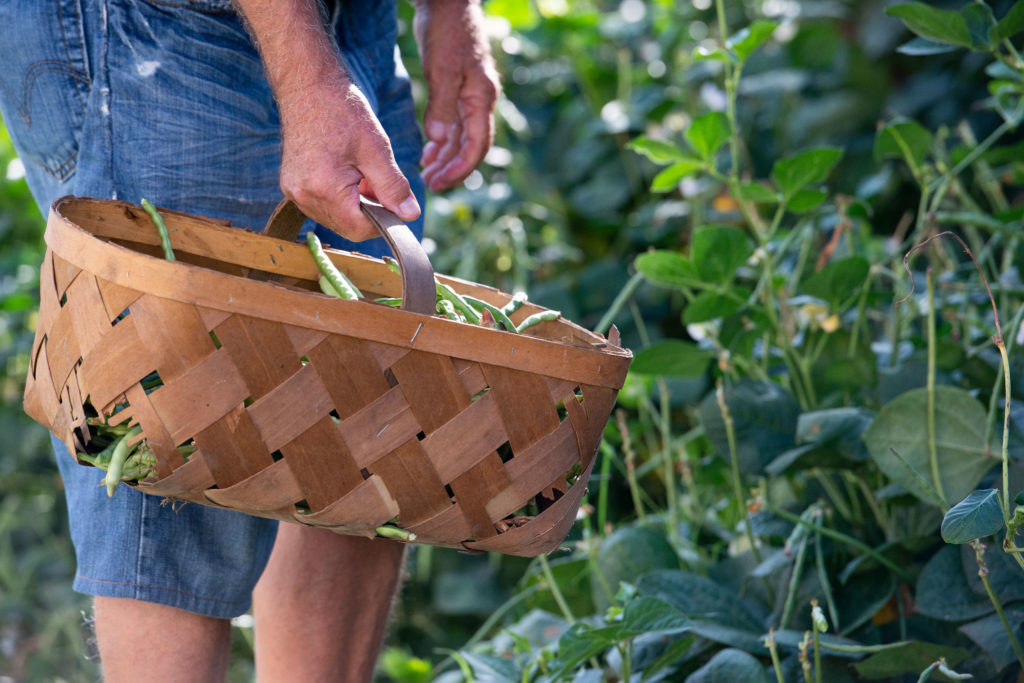
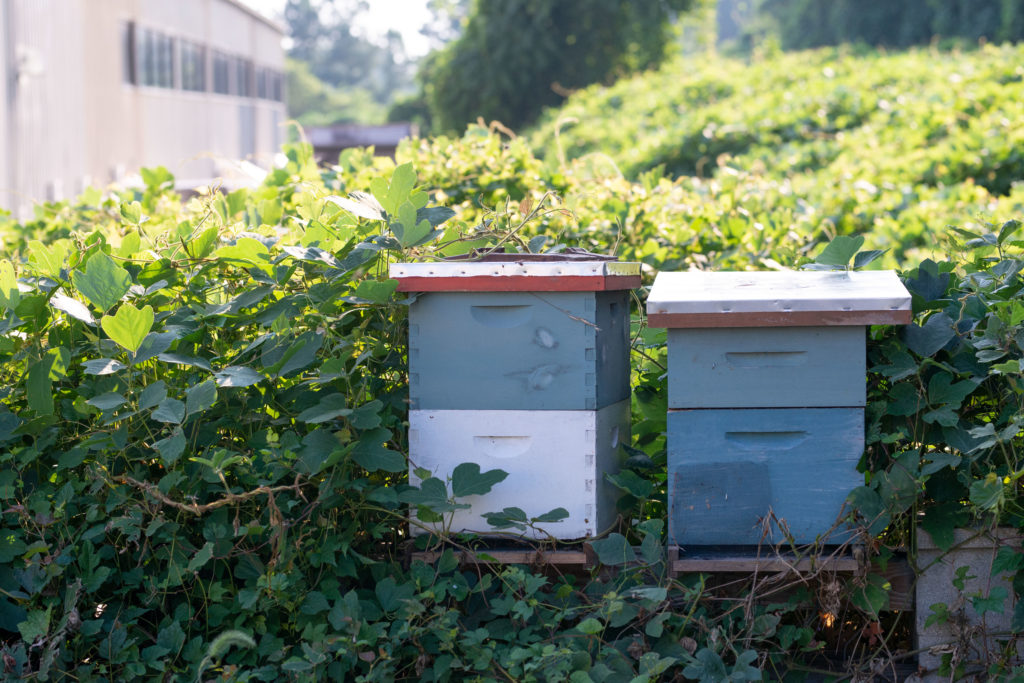

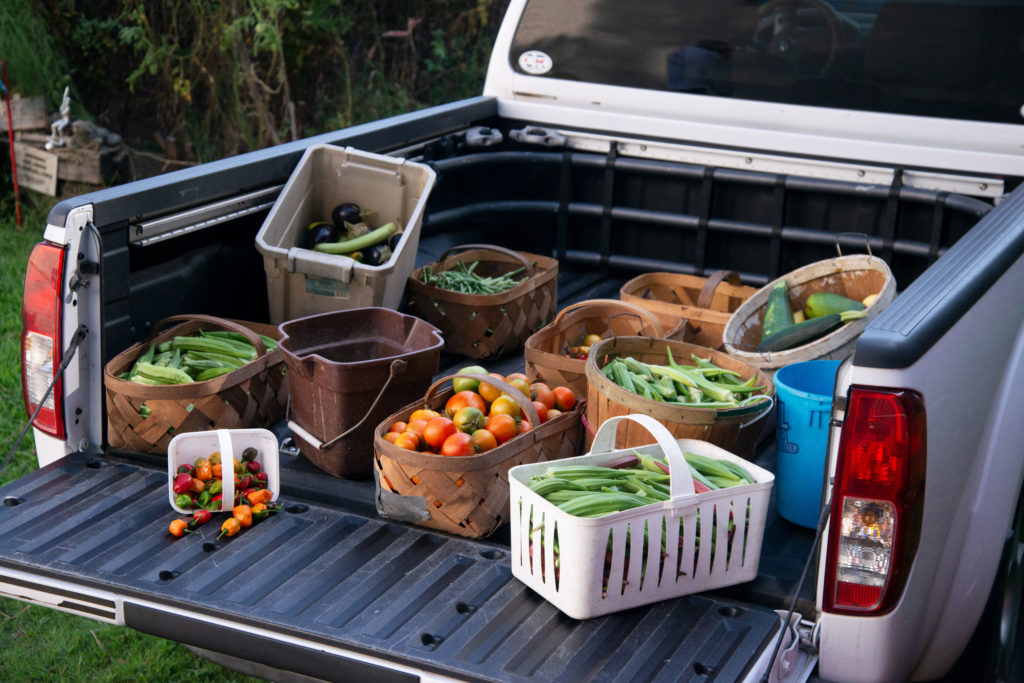
Robertson says the food pantry operation has drastically changed since the pandemic: “We went from serving monthly or every three months to almost daily. We’ve served 42,000 people in this calendar year.” Their team has also added four new refrigerators, ensuring that every family receives milk and eggs. He says that before Covid there were salary thresholds in order to receive assistance, but today it’s no questions asked, as long as you reside in Wake County.
Robertson believes creating a solution to hunger is imperative. “Having a full stomach is a primal necessity,” he says. “It might be the most basic need we have.”
__
This article originally appeared in the July 2022 issue of WALTER magazine.

